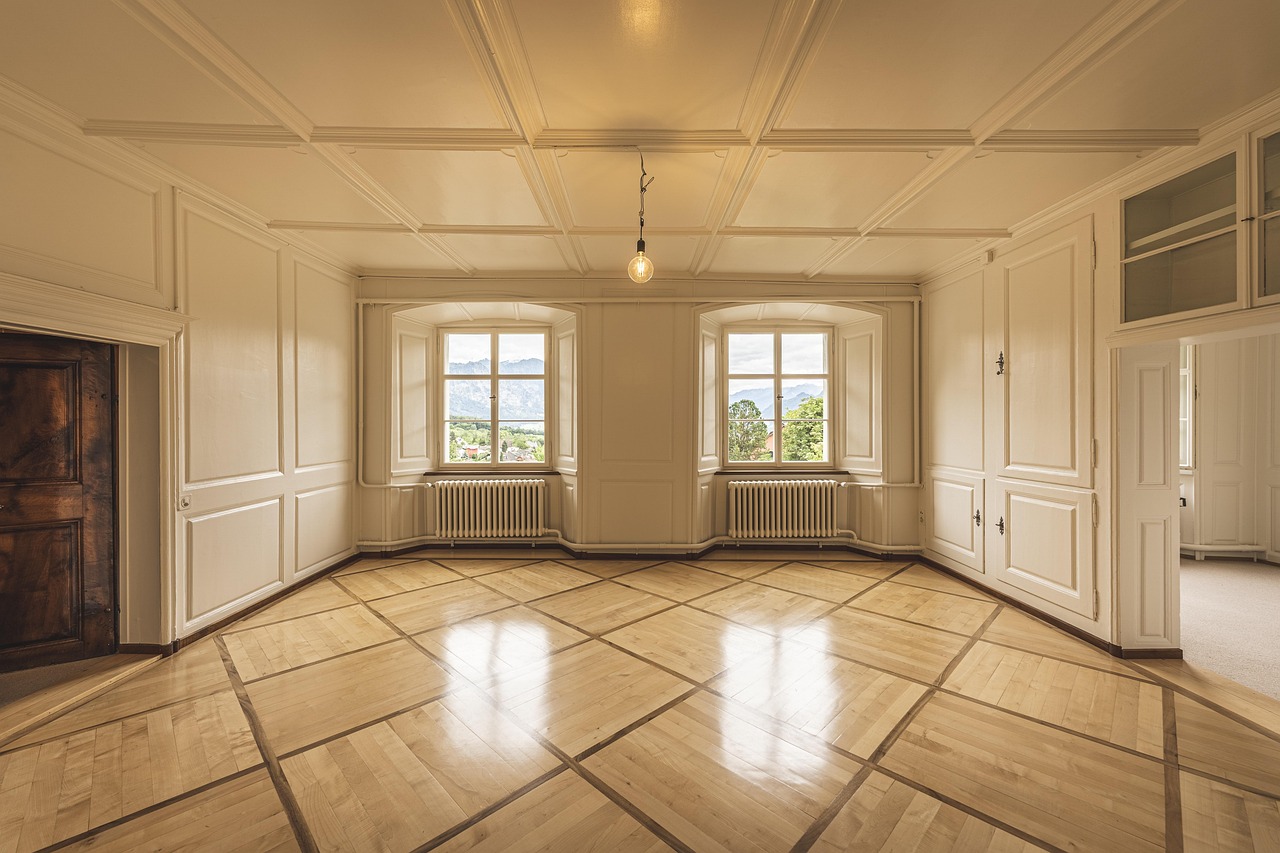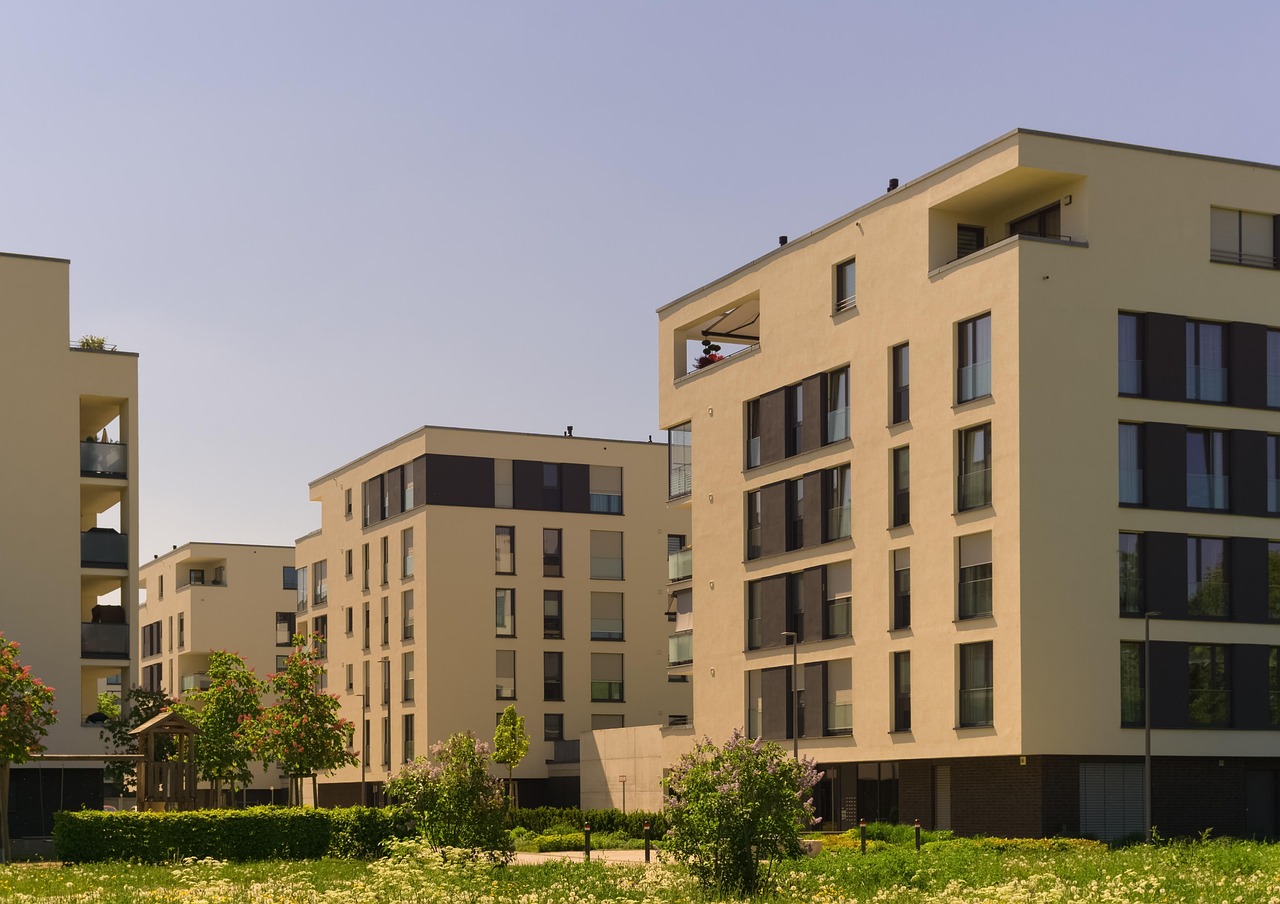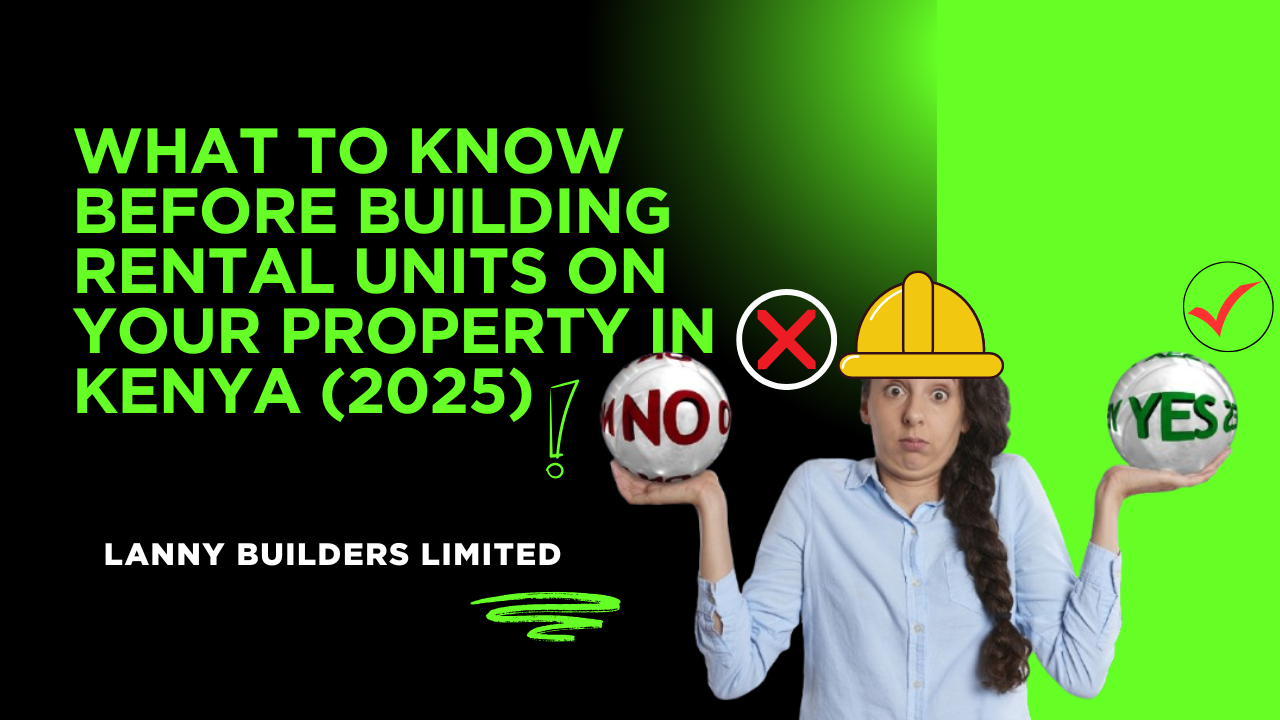Turning part of your land or home into rental units is one of the most effective ways to generate long-term passive income in Kenya. Whether you’re in Nairobi, Eldoret, or Juja, more homeowners are embracing this trend in 2025 — but it requires more than just putting up structures.
This guide breaks down the financial, legal, and practical factors to consider before building rental units on your property to help you make profitable, compliant, and informed decisions.

Why Build Rental Units?
- Extra income: Monthly rent supplements salaries or retirement income.
- Property appreciation: Improved land use increases value.
- Security: Occupied property is less prone to vandalism or squatting.
- Affordable housing demand: There’s high demand for bedsitters, 1BR, and 2BR units in satellite towns.
1. Check Zoning and Land Use Regulations
Before you start building, consult your county’s physical planning office. Most areas in Kenya are zoned for specific uses: residential, commercial, or mixed-use.
Important factors to check:
- Zoning restrictions: Some residential areas restrict multi-dwelling developments.
- Plot ratio and coverage: Determines how much of your land can be built on.
- Minimum setbacks and open spaces: Essential for safety and ventilation compliance.
In Nairobi, for example, residential zoning in estates like Donholm or Komarock may limit density, while places like Ruaka or Ruiru encourage it.

2. Do a Feasibility and Market Analysis
Understand the rental demand in your area. Ask yourself:
- Who are your target tenants — students, young professionals, families?
- What unit sizes are most in demand?
- What rent rates are competitive yet profitable?
- Are utilities like sewer and water sufficient for more occupants?
Study nearby rental properties and occupancy trends to align your project with market needs.

3. Estimate Your Costs Realistically
Many homeowners underestimate total costs. Include:
- Architectural design and approvals
- National Construction Authority (NCA) registration
- Material and labor costs (vary by location and finish)
- Utility upgrades (water meters, electricity extension, septic tanks)
- Legal and professional fees
- Contingency (typically 10–15% of the budget)
Work with a quantity surveyor for a detailed Bill of Quantities (BoQ).

4. Design for Function and Efficiency
On small plots, consider:
- Multi-storey units (e.g., ground floor + 1 or 2 upper floors)
- Bedsitters and 1-bedroom units for high-density returns
- Shared laundry areas, pre-paid meters, and adequate parking
- Natural lighting and cross-ventilation for tenant comfort
- Durable, low-maintenance finishes to reduce repair costs
Avoid overbuilding. Tenants prefer functionality, cleanliness, and safety over luxury in budget rentals.

5. Legal Compliance and Permits
You’ll need:
- Approved architectural and structural drawings
- Change of use (if property use is changing)
- County construction permit and inspections
- NCA registration and project reporting
Non-compliance can lead to hefty fines, project halts, or even demolition.

6. Tax Implications and Income Reporting
Rental income in Kenya is taxable under the Rental Income Tax Regime. If earning less than KES 15 million per year, you qualify for the residential rental income tax at a flat 10% on gross income (as of 2025).
- Register with KRA and file monthly.
- Keep receipts and maintenance records for future expense claims.
Consider opening a separate bank account for rental income to manage finances better.
7. Construction Timeline and Supervision
Avoid relying entirely on your fundi. Instead:
- Hire a qualified contractor or construction manager.
- Set milestones and payment terms.
- Monitor work regularly to ensure quality and reduce theft/waste.
- Budget time for approvals, inspections, and possible delays.

8. Managing Tenants
Once complete, think about:
- Tenant screening (ID, job letter, referrals)
- Lease agreements outlining rent, rules, and notice periods
- Maintenance plans and emergency contact procedures
- Use of digital tools for rent collection and communication
You can self-manage or hire a property manager for peace of mind.

Final Thoughts
Building rental units on your property in Kenya can secure your financial future, but success depends on planning, compliance, and understanding your market. With Kenya’s growing housing demand, especially in satellite towns and peri-urban areas, now is a smart time to act — as long as you do it right.

This is the appropriate blog for anyone who needs to find out about this topic. You understand so much its almost onerous to argue with you (not that I actually would need…HaHa). You positively put a new spin on a subject thats been written about for years. Great stuff, just great!